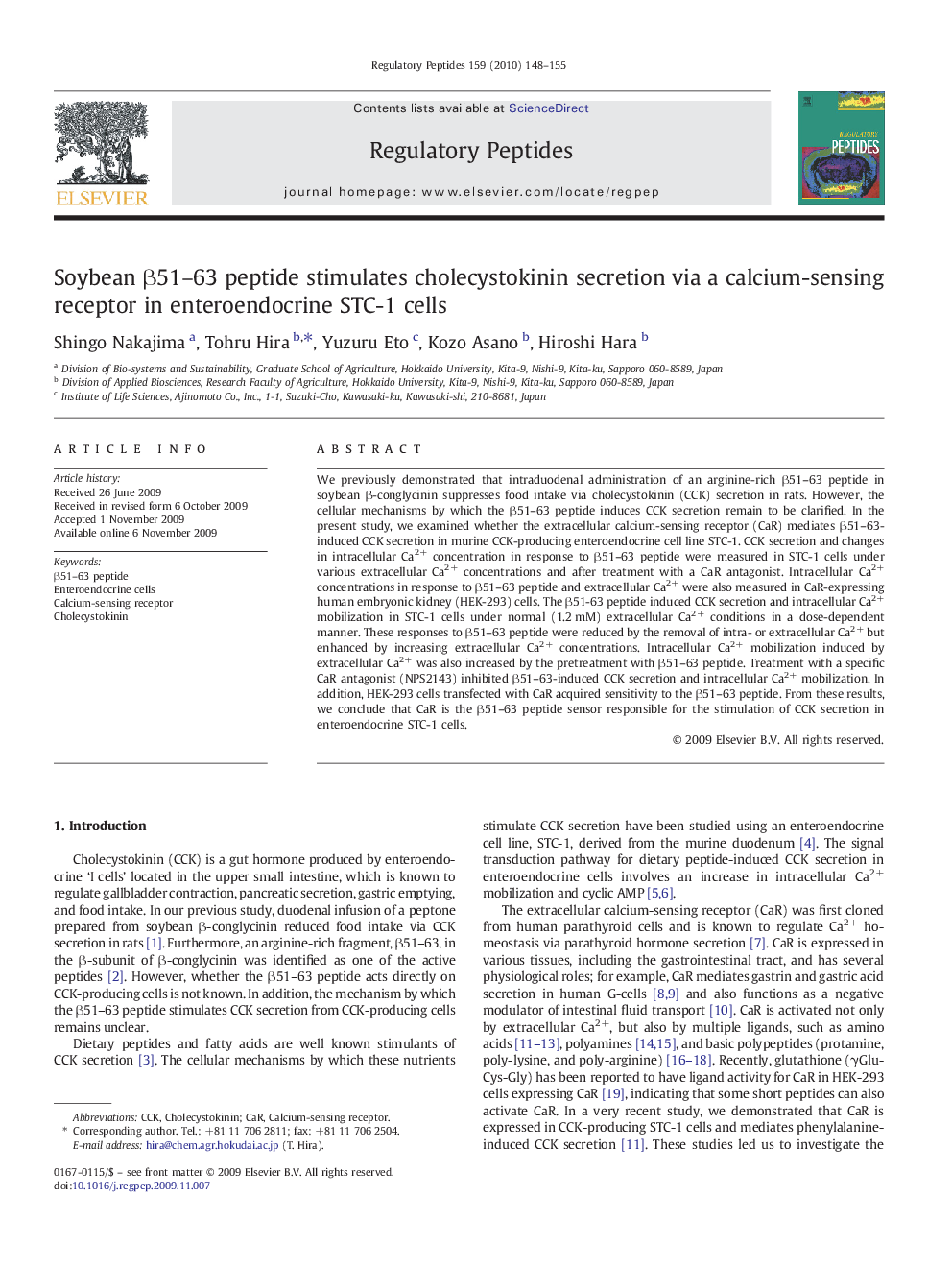| Article ID | Journal | Published Year | Pages | File Type |
|---|---|---|---|---|
| 2022987 | Regulatory Peptides | 2010 | 8 Pages |
We previously demonstrated that intraduodenal administration of an arginine-rich β51–63 peptide in soybean β-conglycinin suppresses food intake via cholecystokinin (CCK) secretion in rats. However, the cellular mechanisms by which the β51–63 peptide induces CCK secretion remain to be clarified. In the present study, we examined whether the extracellular calcium-sensing receptor (CaR) mediates β51–63-induced CCK secretion in murine CCK-producing enteroendocrine cell line STC-1. CCK secretion and changes in intracellular Ca2+ concentration in response to β51–63 peptide were measured in STC-1 cells under various extracellular Ca2+ concentrations and after treatment with a CaR antagonist. Intracellular Ca2+ concentrations in response to β51–63 peptide and extracellular Ca2+ were also measured in CaR-expressing human embryonic kidney (HEK-293) cells. The β51-63 peptide induced CCK secretion and intracellular Ca2+ mobilization in STC-1 cells under normal (1.2 mM) extracellular Ca2+ conditions in a dose-dependent manner. These responses to β51–63 peptide were reduced by the removal of intra- or extracellular Ca2+ but enhanced by increasing extracellular Ca2+ concentrations. Intracellular Ca2+ mobilization induced by extracellular Ca2+ was also increased by the pretreatment with β51–63 peptide. Treatment with a specific CaR antagonist (NPS2143) inhibited β51–63-induced CCK secretion and intracellular Ca2+ mobilization. In addition, HEK-293 cells transfected with CaR acquired sensitivity to the β51–63 peptide. From these results, we conclude that CaR is the β51–63 peptide sensor responsible for the stimulation of CCK secretion in enteroendocrine STC-1 cells.
